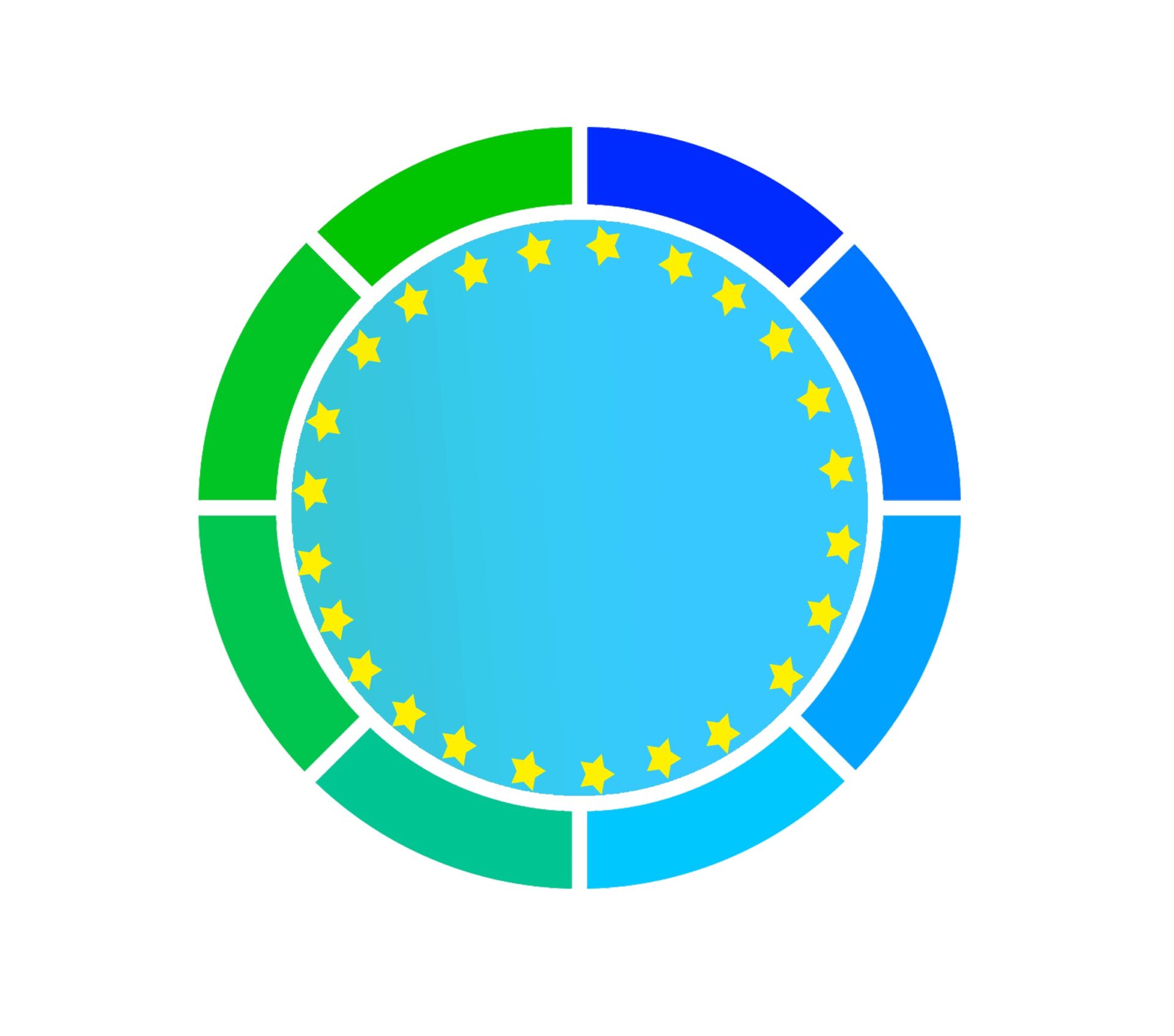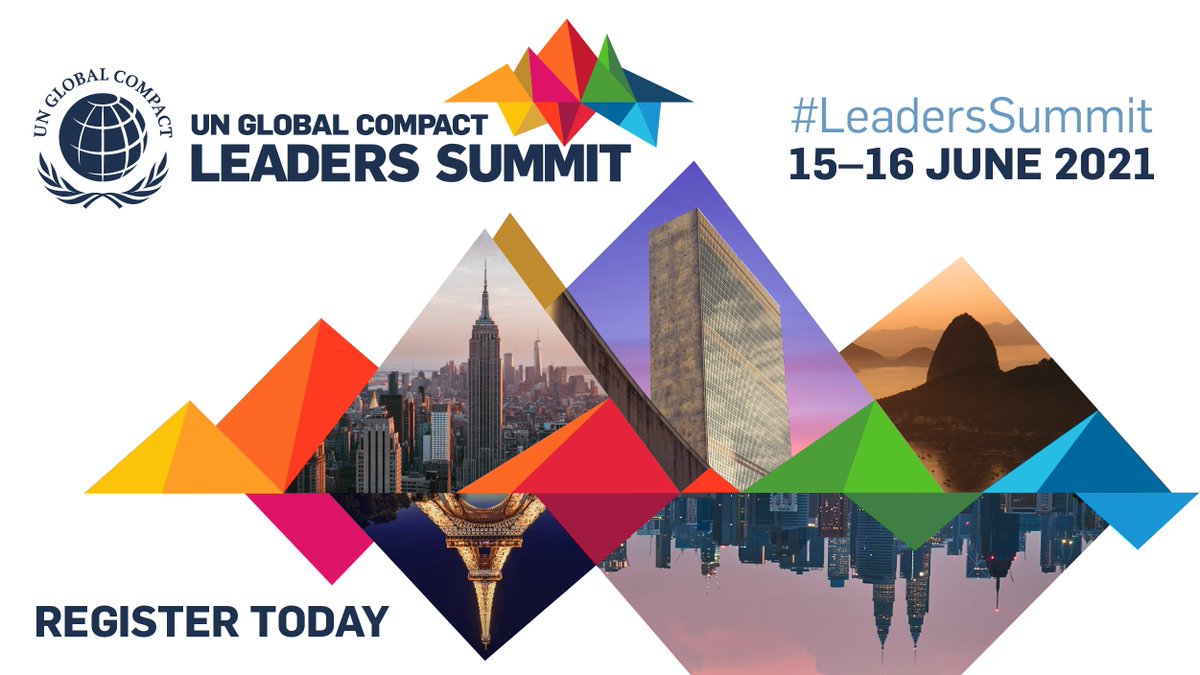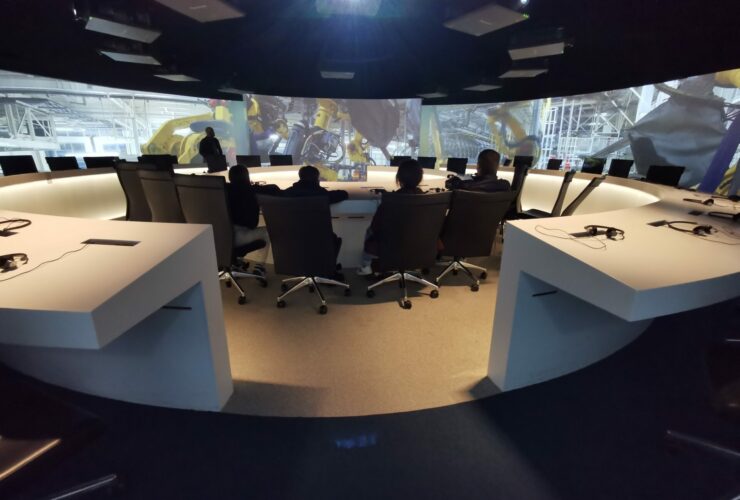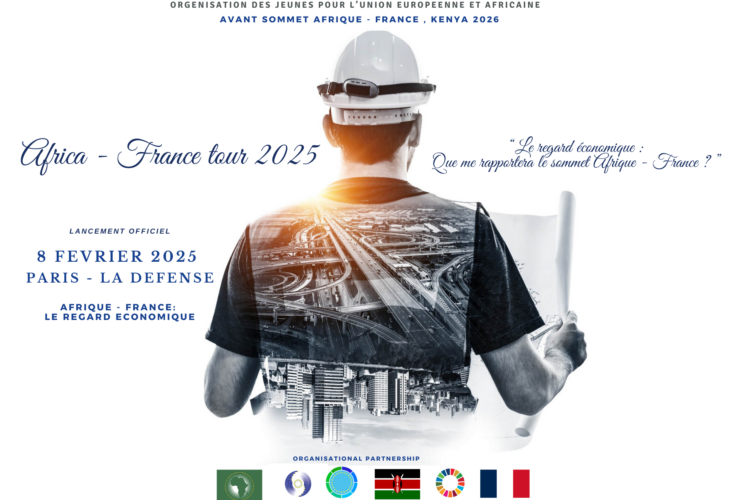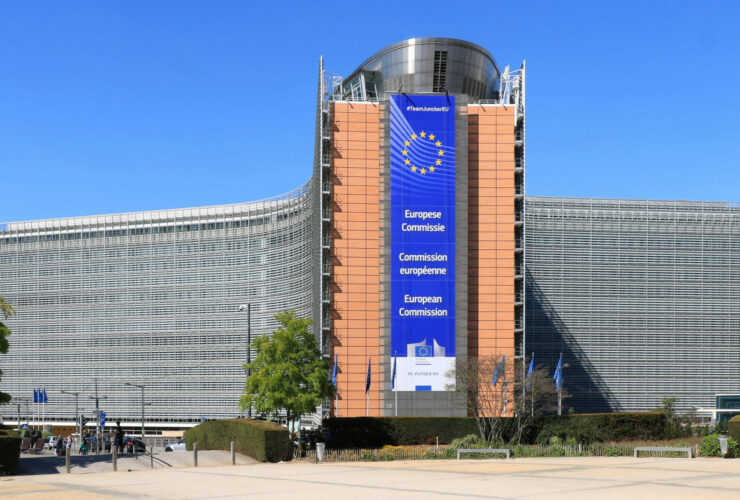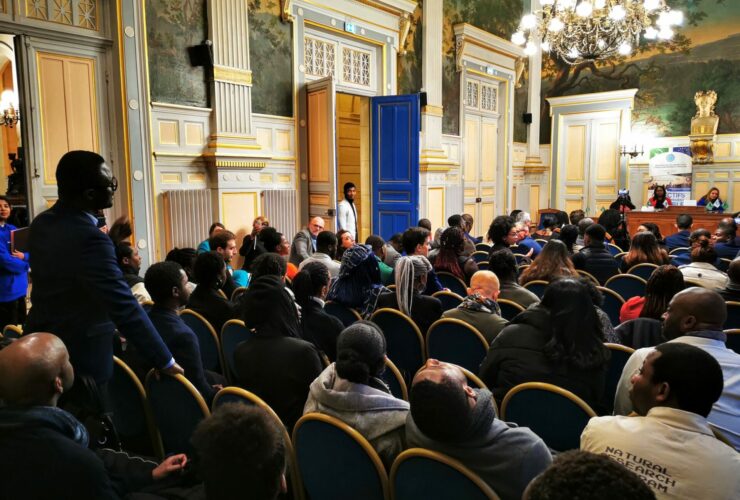Over the years, the Leaders’ Summit of the United Nations Global Compact has grown in fame, becoming more and more popular, while attracting an increasing number of companies wishing to participate in the realisation of the Sustainable Development Goals (SDGs). This event, which gathers more than 600 companies implanted in 65 countries, aims at guiding the private sector in the construction of a more inclusive society, fixing realist and ambitious environmental objectives, and define a clear and strategic plan to set up an ecological transition within companies. Thanks to several guests’ expertise and experiences, the Global Compact shows to each company that they are powerful elements of change and that they are all able to integrate the new principles of the SDGs and environmental action into their operations. Within the SDGs, one could find measures such as the protection of human rights, the reduction of any form of inequalities and poverty, as well as null carbon emissions by the middle of the 21st century.
For its most recent edition, held during the 16th and 17th of June 2021, the summit gathered representatives from the United Nations and civil society, heads of states and CEOs. During more than 26 hours of virtual programmation, they thought together about potential concrete actions for a collective transition towards a world that is fairer and more respectful of the environment. The focus was put on the primordial role of companies in the proposition for faster and more ambitious responses, susceptible to enact true social, political and economic changes by the 2030 agenda fixed by the United Nations.
I) The Sustainable Development Goals, 17 objectives to build a fairer world
To reach the Sustainable Development Goals fixed by the UN, one must inevitably build a more egalitarian and just world. This social dimension can easily be found in the 17 SDGs because more equality is needed in every domain. Indeed, to reduce poverty, warrant universal access to education and health, and make sure that every person, and genders are objectives lying on common values.
Regarding social matters, it has been ascertained that actors from the private sector have succeeded in reducing inequalities and discriminations of any kind in the past few years. However, these efforts remain largely insufficient to truly fulfill the ambitions set by the 2030 United Nations agenda.
These ambitions are hard to accomplish in real life, mostly because of the dangers of ‘tokenism’, namely a purely symbolic endeavour, without any real reach or meaning, as the guests of the ‘Racial justice and urgent challenge of human rights’ panel have noticed. It is not rare for a Person of Colour (POC) or a woman to be designated to occupy high responsibility jobs within board committees for instance, to reflect a sort of diversity within the companies’ effectives. Yet, these acts constitute for the most part a form of artificial progress, as the positions occupied by the ‘diverse’ people rarely come into the process of decision. Not only do they not have the means to enact change, but the percentage of people of colour, or women in these kinds of jobs is far from preponderant. To illustrate this idea, we could mobilise certain data: less than 10% of the world’s companies’ CEOs and associates are women. Of course, this ratio appears far from ideal, insofar as women make up for half of the planet’s population.
But inequality also takes on unsuspected forms, that have critical effects in the work culture. In the field of cinematography for instance, the few cases of representation of Black people in roles requiring solid cognitive or strategic thinking (President, Director, spy or super-hero) compared to mere executives, is another clue that might suggest that the potential of POCs’ is still undermined, nay ignored.
Furthermore, certain companies have been trying more and more to shine light on their low ecological footprint through a series of communication strategies. These processes of ‘greenwashing’ generally aim at receiving awards or recognition/fame without having actually enacted any concrete measures to fight against climate change. Exempt from ethics, this ‘façade’ deceives the consumers while jeopardising the honest efforts of other companies.
But much more than these processes of fake activism, it is mostly the insufficiency of the actions led by the world’s companies that remains at the heart of the Global Compact’s concerns. It appears that most companies still have not realised the urgency of the social challenges, and the key role that the company culture, strategies and actions have to play in enacting true change. Yet, by acting towards racial and gender equality, or towards the eradication of any form of discrimination, it is mainly human rights that the SDGs are trying to reinforce. The companies’ influence in terms of human rights is tangible, as much as the private sector can and must impact on the tendencies, through different means (technological, financial, through the media) they possess, therefore directly shaping the consumers’ experience and culture.
It appeared necessary to enlarge, accelerate and intensify the collective, global impact of the world’s companies. The guests therefore proposed a number of different ideas meant to transform the noble ideas and speeches into concrete actions.
One of the ambitions has been to ensure a culture paradigm and mentality change within companies with rules and procedures of governance that are precise, transparent, and able to warrant the sanction of any kind and expression of discrimination within the companies’ borders. The challenge is to transform the company culture as well as the leading organs, something which seems quite difficult since it would mean renouncing years of privileges and the supremacy of the dominating classes (White race, men, etc.). During the conference entitled ‘Accelerating the ambition for gender equality in a post-COVID world’, linked to the 8th SDG, the guests mentioned several ways to adapt the professional cadre to make it more diverse in terms of gender, with measures such as equity concerning the protection of jobs for mothers, or even equal pays.
On the long run, this culture change must also be able to take root in the ‘humans’ private sector’, notably through the civil society and individuals’ actions. Because of a historical, cultural or religious heritage, we each, unconsciously bear the seeds of discrimination. It is up to us to fight these preconceived ideas, by for instance teaching children values of respect, and human dignity in all its glory/diversity (of race, people, religion, gender, etc.). This is also a personal work, that does not stop at the barriers of the company, therefore avoiding any kind of sexist or racist comments or behaviours in each and every instance of life (family and friends, work, …). The goal is to promote more inclusive, and realistic approaches to tackle inequality. The education to understand what sustainable development truly is therein one of the most urgent social actions required by the SDGs, an endeavour which will need a collective effort.
II) The Sustainable Development Goals, an opportunity to rethink our economic models
In September 2015, the Sustainable Development Goals (SDGs) were adopted to work towards a better and more sustainable future for all. These goals address the various challenges and stakes our world is currently facing, such as poverty, climate change, justice and peace. While considerable progresses have been made since the adoption of the SDGs, efforts to achieve these goals by 2030 remain insufficient. As the United Nations is setting up and implementing various programmes and policies to achieve these goals, it is important that it can rely on governments, civil society and the private sector to implement collective action in line with the Sustainable Development Goals, and the United Nations Global Compact.
This year’s UN Global Compact Summit was an opportunity to review the progress in the achievement of the various principles, as well as to recall the ambition of strategic collective action in the economic field. This ambition is part of the implementation of the different SDGs in order to create a just, equitable and resilient society. Among the various conferences that the Youth Organisation for European and African Union had the honour of attending, the economic field embodied a great part of the conversations.
Firstly, and in particular through the conference entitled “Ensuring Living Wages: A Commitment to Advance Decent Work Globally”, the need to ensure decent wages for workers was reaffirmed. This challenge responds to the first Sustainable Development Goal, namely the fight against poverty. While this includes the social aspect of work, considering the notion of workers’ well-being, there is also an underlying economic aspect, linked to the employees’ purchasing power and the reputation of the company. During this conference, several personalities took a stand on this subject: Kalpona Akter, Founder and Executive Secretary of the Bangladesh Center for Worker’s Solidarity; Jean-Pascal Tricoire, CEO of Schneider Electric; Sharan Burrow, General Secretary of the International Trade Union Confederation; and Alexandra Palt, Executive Vice-President of the L’Oréal Foundation. Each of them pragmatically reminded us that the ideal of ensuring decent wages for all workers in companies is far from being achieved. This stake represents a real challenge for companies, as does the fight against poverty. In order for this to be fully implemented, the guest speakers reaffirmed the need to ensure a certain uniformity of wages between companies, so that such a measure may be beneficial to all. In this respect, the UN Global Compact can help companies to define this set of standards for living wages, in order to accelerate the ongoing process, while ensuring a fair framework between each company.
In addition, the summit was an opportunity to reinvigorate the fight against corruption in the private sector, which is represented by the tenth principle of the UN Global Compact. The several conferences on the subject have, for the most part, seen this fight as an intersection with the promotion and defence of human rights, embodied by the sixteenth SDG. As corruption can have far-reaching consequences in the long term, it appears imperative for companies to have strategies in place meant to fight against such dangers, as well as programmes preventing the violation of human rights.
In this sense, this UN Global Compact summit saw the launch of the “Playbook on Anti-Corruption Collective Action”, enabling companies and other business actors to unite in this fight. Collective action, the main theme of the conference, was seen as the only way to meet this challenge while ensuring a level playing field for all participants, minimising risks and offering new business opportunities. The guests also encouraged cooperation between the public and private sectors in the fight against corruption, with, in mind, the promotion of stable and sustainable partnerships, as well as the upholding of values such as integrity within companies and in the business world.
III) The political aim of the conferences, ecology and human rights
At the heart of the SDG’s advocacies, political struggles and the activism for human rights were epicentral to the event. Regarding this matter, two subjects in particular caught the attention of the guest speakers: the fight against corruption, and the dangers of the climate crisis.
The issue of corruption is not new. However, the 16th SDG invites us to look at the problem from a human rights perspective. Indeed, in both the public and private spheres, speakers underlined the direct link between illegal practices leading to mismanagement and the violation of human rights, as well as the aggravation of environmental problems through unscrupulous behaviours favouring profit over ethics.
As Rachel Nicolson, Litigation and Investigations Partner at Allens, explained, the goal of the 16th UN SDG is to create a more peaceful society so that it may truly thrive and prosper. According to her, tackling the problem of corruption must lead to a reflection on the reduction of bribes, two problems that go hand in hand.
So how should we approach the fight against corruption? Does it not amount to struggling against a very active but invisible enemy?
To this question, Serena Lillywhite, Executive Director of Transparency International Australia, highlighted the difficulty of the task in the face of threats, that silence those who would be likely to act in favour of pacifying the reports. According to her, it is therefore necessary to accompany and encourage companies to first assess the risks of mismanagement and/or corruption in order to prevent them.
Finally, wherever human rights and its corpus of values are erected and defended, values from which the objectives of sustainable development are not dissociated, the dangers of corruption would be removed. Let us therefore see the glass half full and welcome the pacification of the health crisis as a mean, not only to rethink our economic models, but also as a mean to create a more ethical system, that truly grants equality for everyone. In this endeavour, the involvement of civil society and the media will reveal to be crucial. In other terms, the fight against corruption and bribery can only be effective if this problem is first recognised as a violation of human rights and a threat to the environment.
Speaking of the environment, the climate crisis and the struggle against climate change also monopolized a great deal of the debates. This challenge, embodied in the 13th SDG, remains one of the most, if not the most important stake devised by the SDGs. To this agenda stand several objectives, such as the limitation of global warming to a 1.5-degree index by 2100, the transformation of the world’s companies’ operating mode, or even the investment in green finance.
The conferences organized by the Leaders’ Summit, whose main topic was the climate crisis, were all founded upon the same acknowledgement: the international community has not held its commitments to reduce carbon emissions and therefore put an end to global warming. Two conferences in particular dealt with the subject in depth: the first, entitled ‘Human Rights and Climate for a 1.5° Pathway’, sought to link the political struggle for the climate and the challenge of human rights, while the second one, ‘Engaging Youth in the Race’, focused on the role global youth has to play in this ecological effort.
The ‘Human Rights and Climate for a 1.5° Pathway’ thus mentioned the tremendous amount of work private and public actors still had to put in the cause, and the fact that this effort could not happen unless a collective endeavour took place, gathering countries and actors from all over the world in order to protect the ultimate common good: our planet. But as the different guests reminded us, this transition, although crucial, has to stay coherent with the SDG’s other objectives, specifically regarding human rights. Pioneer in the matter, Miguel Setas, CEO of Energias do Brasil (EDB), for instance already set up an Office in his company tasked with diversity and inclusion. The results already seem tangible, as his company’s employees come from 41 different countries. Furthermore, the CEO underlined the duty of people in high-responsibility jobs to keep a human contact with their employees, especially in terms of mental health and their well-being within the company.
Joao Zuquete da Silva, representative for the Portuguese telecommunication operator, Altice Portugal, also emphasized the necessity to adapt the companies’ operating mode to the evolution of climate change. The man shed light on the fact that the struggle against global warming was certainly a collective endeavour, that emerged from an individual responsibility. Regarding companies, it means for instance that they should make sure their supplying in energy comes from renewable resources, a measure which allows to fuel and give more power to sustainable finance, and thus to imagine more projects. The investment in new technologies, such as green hydrogen and electrical cars is also quintessential.
The second conference, which dealt with a similar subject, managed to develop the role that youth had to play in this collective struggle. Gonzalos Munoz, Chilean entrepreneur and recipient of the 2019 ‘Climate Champion’ title, called for young people to ‘make their hands dirty’ in what he considers a ‘race against the clock.’ Yet, as Farai Chireshe, analyst in bioenergies for the WWF, demonstrated, the implementation of climate policies seem unfortunately inaccessible for youth, and especially African youth. Of course, this acknowledgement collides with the fact that African innovators have always been at the forefront of the fight for climate, insofar as they are trailblazers in sustainable development and innovative solutions against the consequences of global warming.
After giving a platform for experts to expose their conclusions, it was the students’ turn to voice their preoccupations regarding the greatest challenge of our generation. Emily Shuckburgh, student at Cambridge University, and Valeria Soto, student and representative of WWF Mexico, therefore successively defined the crucial steps towards an effective action against climate change, and the how involved youth should be in this fight. In the first instance, unification is key. By creating groups of discussions, people will truly feel united, not alone against this global crisis. Once these groups are created, the goal would be, according to the young women, to share knowledge on the subject in order to avoid any kind of misinformation/preconceived ideas, whilst promoting local, and then regional, nay international cooperation. Examples of such cooperation already exist. For instance, as of now, the Green Africa Youth Organisation managed to set up a common commitment to the environment on a local level.
In reality, these conferences emphasized the fact that committing to the ecological cause remains an investment, a path on the long run, that not enough private and public actors have undertaken. The idea is that the solving of the climate crisis is an individual effort, that must be transcribed into something collective, or in other terms, that when actors actually commit to the environment, it creates a ‘snowball effect’ which spurs their counterparts to do the same.
If the topic occupied such a primordial place in the debates, it is indeed because this stake is crucial to the SDGs. The deadline set in 2030 by the SDGs is far more urgent insofar as natural catastrophes get worse and worse each year. In 2018, natural catastrophes (droughts, massive wildfires, hurricanes, floods) have impacted the lives of more than 39 millions people all over the world, while the year 2019 was declared the second hottest year ever registered in the history of mankind. Facing such bleak facts, a cooperation linking all the actors has to take place, committing them on every level (local, regional and international). Therefore, this cooperation might represent an investment on the long term, but it is a necessary wrong for the good health of the planet.
Grateful for the opportunity we were given to participate to this event, the Youth Organisation for the European and African Union reaffirms its trust in the United Nations’ institutions.
This report was written by Matthis ROECKHOUT, Thomas CASTELLI, Luna VITAL-DURAND, Fabien MAHE, Emilie NGOMEN and Valentin BOSSHARD
